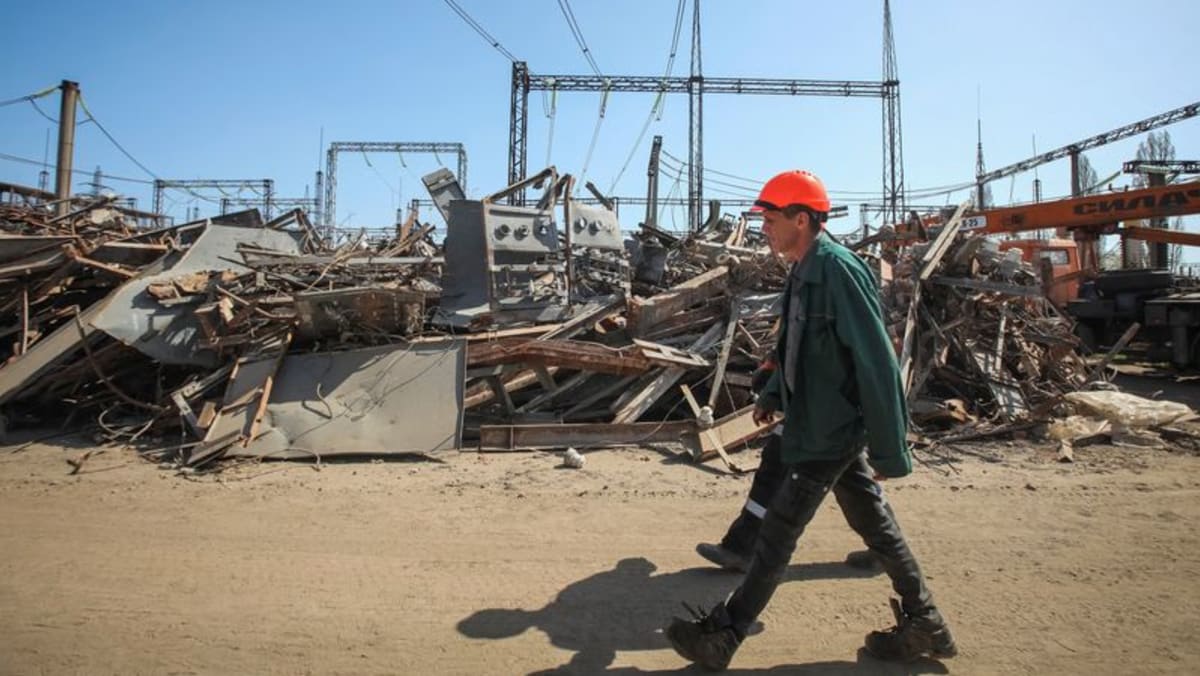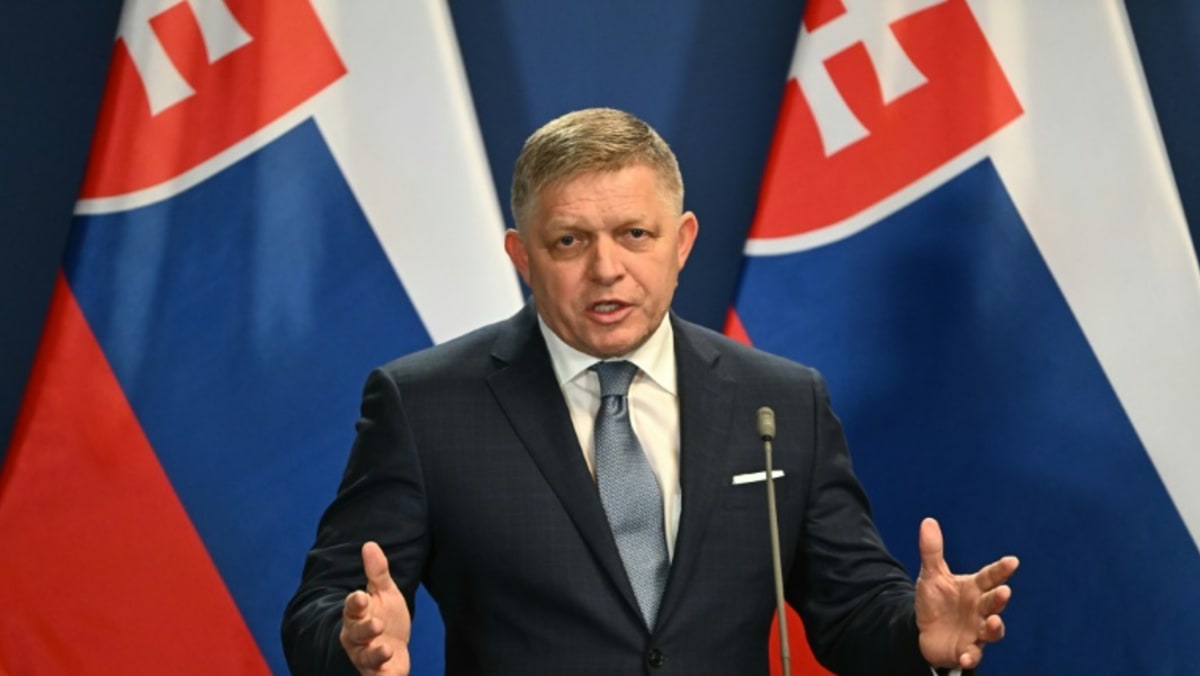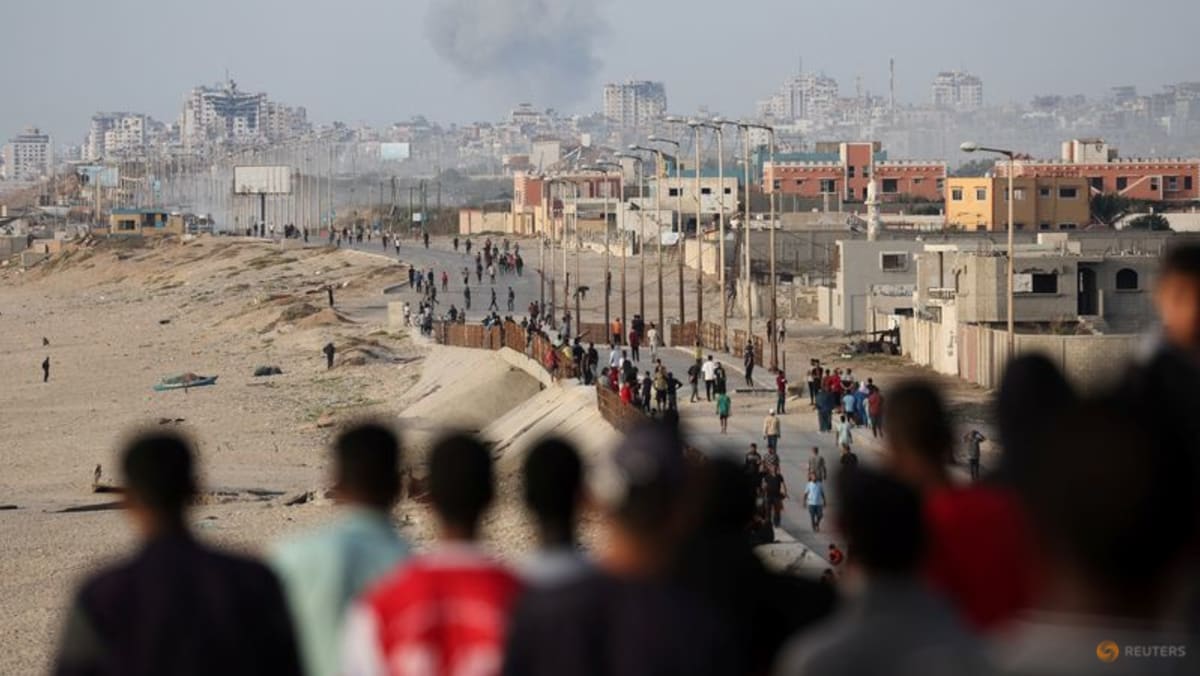Chinese President Xi Jinping is in France for a state visit, as part of his three-nation European trip aimed at boosting political and economic ties amid global tensions.
The six-day tour is Mr Xi's first to Europe since 2019. After wrapping the visit in France on Tuesday (May 7), he will head to Serbia and Hungary.
 French President Emmanuel Macron attends a trilateral meeting with China's President Xi Jinping and European Commission President Ursula von der Leyen (not seen) at the Elysee Palace in Paris as part of the Chinese president's two-day state visit in France, May 6, 2024. REUTERS/Gonzalo Fuentes/Pool
French President Emmanuel Macron attends a trilateral meeting with China's President Xi Jinping and European Commission President Ursula von der Leyen (not seen) at the Elysee Palace in Paris as part of the Chinese president's two-day state visit in France, May 6, 2024. REUTERS/Gonzalo Fuentes/Pool
How does Xi’s trip reflect China's shifting priorities?
Europe has become a priority for China’s foreign policy since the lifting of COVID-19 restrictions, said observers.
China has been pushing for a “multipolar world” and sees Europe being a separate and independent actor from the United States, which “would give the PRC (People’s Republic of China) a little bit more manoeuvring space”, said political scientist Chong Ja Ian.
“They see a world where there are multiple major actors, as one where the sort of mutual competition and adjustment gives the PRC strategic space to move around.”
Dr Chong, an associate professor at the National University of Singapore, told CNA’s East Asia Tonight on Monday that China “is also trying to seek more investment from around the world, (and) the Europeans are one of the sort of sources that the PRC is looking to.”
“(French President Emmanuel) Macron has talked about how Europe needs to be sort of more independently-minded from the United States, and so (France) seems like a useful place for Xi to start,” said Dr Chong, who is also a non-resident scholar at Carnegie China.
“If you look at the other places on his itinerary, Hungary and Serbia, these are also places in Europe that seem to be pushing for closer ties with places like Russia, (and) that may be a bit different from the United States in the positioning.”
Why these countries?
Dr Cedomir Nestorovic, professor of international marketing and geopolitics at ESSEC Business School (Asia Pacific), said the three countries chosen for the tour do not come as a surprise.
Mr Xi's visit to France coincides with the 60th anniversary of Sino-French diplomatic relations, and indicates the relative warmth between both sides.
The choice of France as the only significant European power to visit shows Mr Macron’s stature as a powerbroker within the European Union, said analysts.
It follows the French president’s trip to China in April last year, where he said the EU should not be dragged into a conflict between China and the US over Taiwan.
Dr Nestorovic told CNA’s Asia First on Monday: “France is among the big countries in the West most open to hearing what China has to say.”
The other countries selected, Serbia and Hungary, are seen as China-friendly, and are used as a foothold for its expanding economic ambitions in Europe.
Thee two small countries are quite receptive to China’s Belt and Road Initiative (BRI) and have courted economic ties with the world's second-largest economy, inviting major investments in various areas from infrastructure to technology.
These include developing vast battery and electric vehicle manufacturing plants in Hungary, and copper and gold operations in Serbia.
What is on the agenda?
On Monday, Mr Xi held talks with Mr Macron and European Commission President Ursula von der Leyen.
The Russia-Ukraine war was among the key issues on the agenda.
During the trilateral talks, Mr Macron and Dr von der Leyen pressed Mr Xi to use China's influence to end the Russian aggression against Ukraine.
But with Mr Putin planning to visit China later this month, it is unlikely that there will be much changes on that front, said observers.
Russian President Vladimir Putin signed a “no limits” partnership agreement with Mr Xi in February 2022, less than three weeks before sending his troops into Ukraine.
The meeting on Monday also covered trade disputes and global challenges, including the Israel-Hamas war.
Both Mr Macron and Dr von der Leyen urged Mr Xi to accept fair global trade rules.
The discussions come amid a slew of probes launched by the EU in recent months into alleged unfair trade practices by China, which had earlier slammed these moves as “protectionism”.
France has shown “some possibilities of cooperation with China that we didn't have coming from the other countries”, which are taking a cautious approach towards it, said Dr Nestorovic.
Dr Chong said the relationship between China and the EU is multifaceted.
While some nations believe that unfair competition is driving European firms out of the market, others view China as a target for investment, he added.
“So it's quite a mixed picture, and the two sides will have to navigate that relationship.”
Meanwhile, Mr Xi’s upcoming visits to Serbia and Hungary are seen as efforts to establish inroads in Europe.
A major project aims to refresh a railway line between the countries’ capitals of Belgrade and Budapest, mainly financed by China as part of its BRI plan. It will transport Chinese goods from the Chinese-controlled port of Piraeus in Greece onto Europe.
Serbia and Hungary are among the most sympathetic to Russia on the continent.
“The PRC support for Russia and Russia's war efforts has been a sticking point for its relationships with Europe,” said Dr Chong.
“So I suppose going to Serbia, which is more friendly towards the PRC and outside the EU, and a sort of more Russia-receptive place like Hungary allows Xi to push the case that its relationship with Russia may not be such a bad thing, perhaps the rest of Europe shouldn't frown upon it so much.
“But for states that are also near Ukraine, they are worried that the continued war, Russia's continued aggression could potentially spill over into their borders.”












 English (US) ·
English (US) ·  Turkish (TR) ·
Turkish (TR) ·